When the music’s over: ‘Cranker’ threat prompts cultural heritage debate
Adelaide is a UNESCO City of Music, but legendary East End live music venue the Crown & Anchor is under threat from a proposed student housing block. As David Simmons reports, the issue shines a spotlight on city development and planning rules versus preserving local culture and heritage.

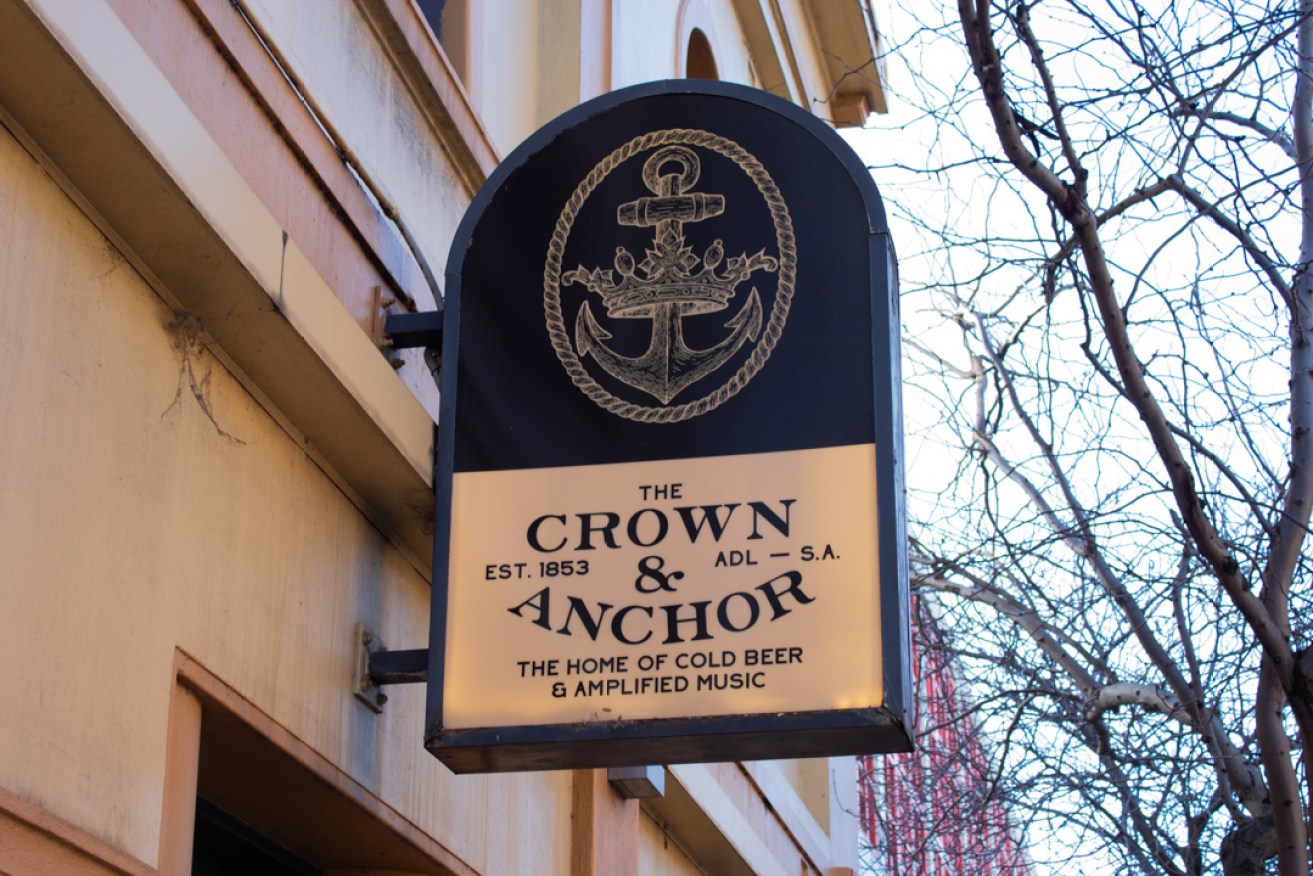
The future of the Crown & Anchor is uncertain after a developer applied to build 'multi-level' student housing. Photo: David Simmons/InDaily.
Singapore-based Wee Hur Holdings last week lodged a development application to build multi-level student housing at the East End site of the Crown & Anchor – one of Adelaide’s oldest pubs.
The proposal included “partial demolition and adaptive reuse” of the local heritage-listed building.
Proposed for 188 and 196 Grenfell Street, the student housing block if approved would rise on a site zoned to allow up to 15 storeys. It now houses the longstanding live music venue known as the “Cranker”, as well as neighbouring Roxie’s and Chateau Apollo.
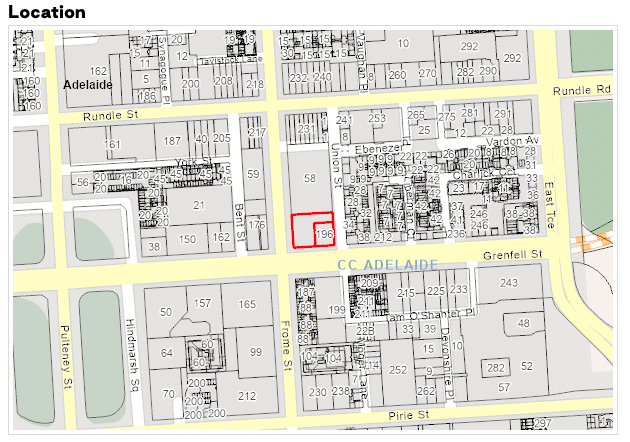
Wee Hur Holdings Ltd has applied to build ‘multi-level student housing’ on the red marked area fronting Grenfell St between Frome St and Union St. The Crown & Anchor site is the square within the boundary. Image: Plan SA
The Crown & Anchor, which also has the Midnight Spaghetti restaurant on its first floor, is owned by developer Karidis Corporation which purchased the hotel in 2016.
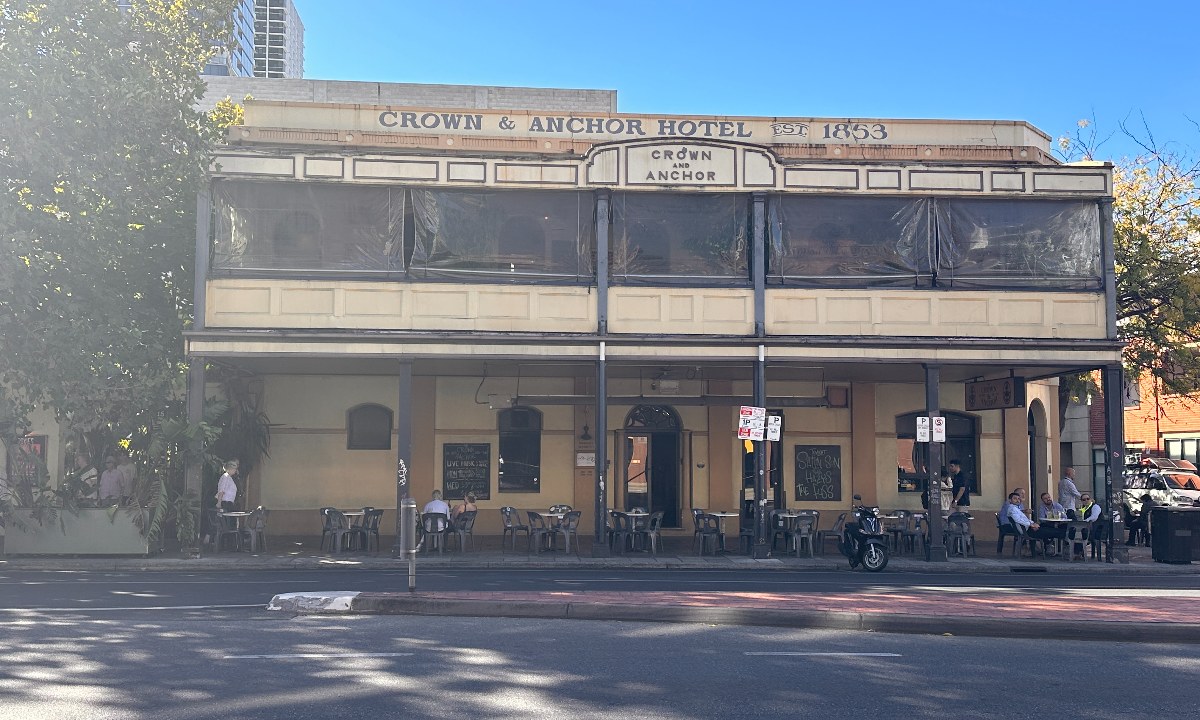
The Crown & Anchor is one of Adelaide’s oldest pubs and a thriving live music venue in the East End. Photo: David Simmons/InDaily.
News of the building application sparked community outcry and the launch of a petition to ‘save’ the Crown & Anchor which at the time of writing had nearly 8000 signatures. A Facebook event titled CRANKER NO DIE was also created “to show your love and support in keeping our home alive”.
Crown & Anchor publican Tom Skipper said: “We want to see Adelaide develop and grow, but not at the expense of live music and it is critical we preserve venues so the next generation of Australian musos can get their star”.
“Nothing is set in stone at this stage and we will continue work to ensure the Crown and Anchor remains the uniquely Adelaide institution that we all love,” he said.
The Crown & Anchor is a survivor of a once-thriving live music scene in the CBD and East End in particular. The Producers on Grenfell St and Pirie St’s Tivoli have long since ceased operating, while The Austral on Rundle St declined as a music venue after it was forced to build a soundproof bunker over its beer garden when an apartment block was build directly behind it.
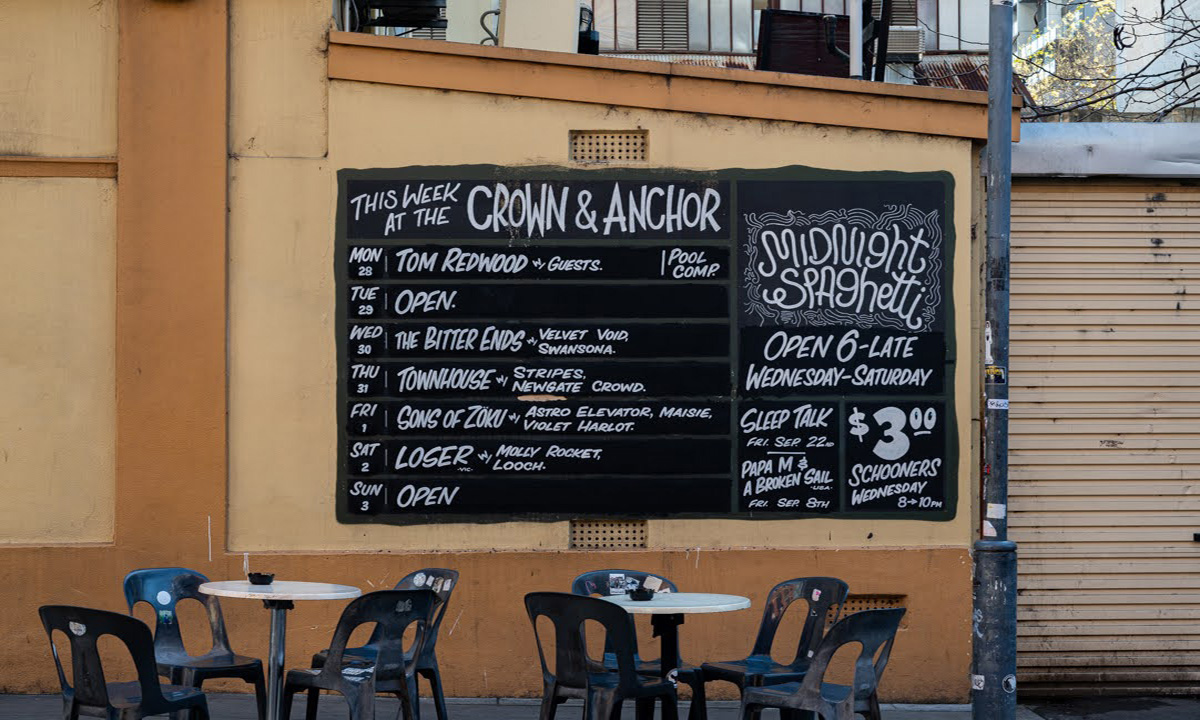
The Crown & Anchor features live music nearly every night, giving many musicians and performers across genres valuable stage time. Photo: Liam Jenkins/InDaily
The development threat to the Crown & Anchor, which has hosted inner-city live music for more than 30 years and presents acts nearly every night, has prompted calls from the creative industries sector for city planning law reform.
They argue that cultural value should also be taken into account when considering planning applications that impact such venues, and for greater protection.
Planning Minister Nick Champion said the State Commission Assessment Panel (SCAP) would assess Wee Hur Holdings Ltd’s development application against the site’s zoning of up to 15 storeys.
“The owners of this property have rights under our system, and they’re going to make an application,” he told ABC Radio Adelaide.
“As part of that application, there’ll be public notification, the government architect will look at the proposal, and obviously, there’s a heritage and character element with the Cranker because it’s a very old hotel and probably had a life before it was a live music venue serving to butchers and workers down the East End,” he said.
Champion said that planning laws and heritage protection did not guarantee sites would continue as they were: “The built form is protected… you can’t really protect the culture that surrounds a particular building,” he said.
Critics say that highlights a flaw in planning laws, when such developments are proposed for a lively, historic and live music precinct such as the East End.
University of South Australia lecturer in creative industries Dr Sam Whiting told InDaily that the plan to build a student accommodation block at the Crown & Anchor site was an example of a “ham-fisted approach to zoning and development that, unfortunately, is quite common in Australia and Adelaide”.
“There are plenty of locations for student accommodation and residential development in the CBD, and I am very pro residential development in the CBD… because we have a very underdeveloped and low-density CBD,” he said.
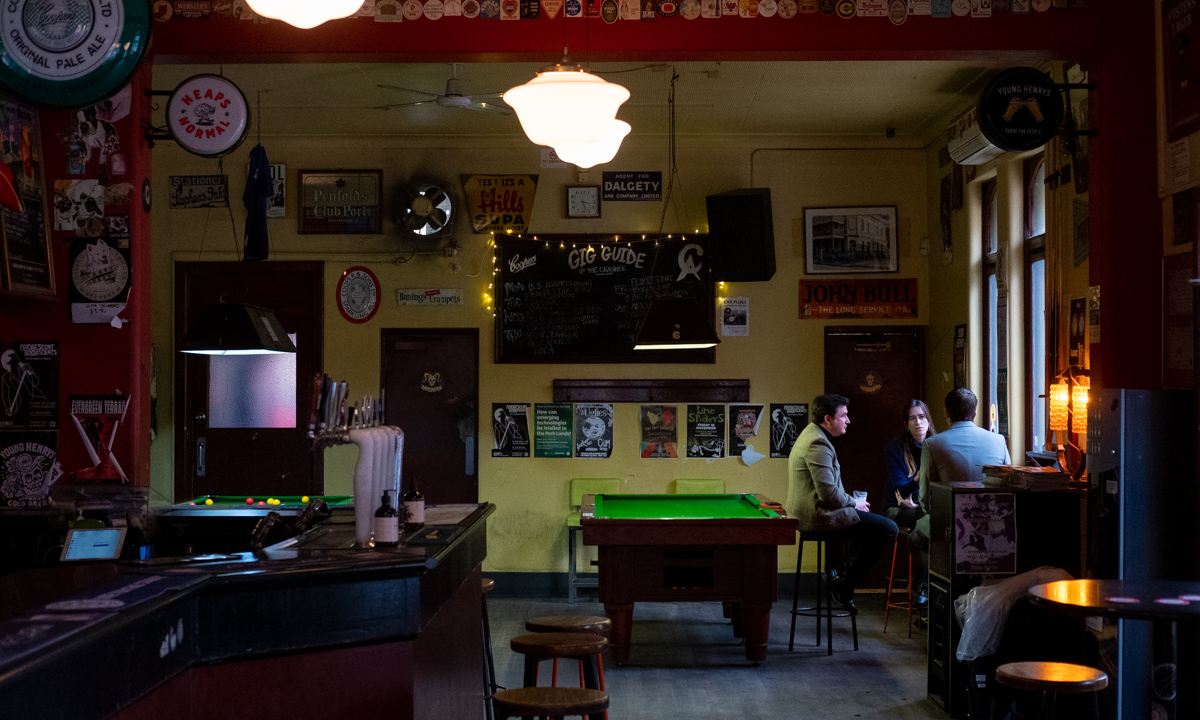
“There are a number of empty holes in the ground in the city that are sitting derelict, yet we’re deciding to build student accommodation in the centre of our cultural precinct in the East End.
“Why would you use that location? We have major urban corridors in and around Adelaide that are incredibly underdeveloped. It just seems to be this very poorly thought out approach to development that doesn’t take into account not only the cultural aspect, but the pre-existing built environment as a whole.”
Adelaide is also Australia’s first and only city to be designated a UNESCO City of Music.
Its website says “Adelaide is a city with music as its heartbeat”.
“A strong cultural heritage is the backbone of Adelaide’s diverse and vibrant contemporary cultural scene… the city is home to countless independent musicians, an entrepreneurial music industry that’s growing by the day, and a plethora of live music venues.”
UNESCO City of Music Adelaide general manager Joe Hay told InDaily that the cultural impact of existing venues should be considered when planning authorities make decisions.
“There’s the rules about what needs to be retained, and then there’s the city you’re trying to build: what are you trying to encourage and what’s important to that city?” he said.
“I would hope that the decision that’s made reflects the city’s cultural needs, not just the developers’.
“The culture of a city is the thing that makes it interesting or exciting. We need to be able to take that into consideration when approving buildings and the things that need to be put in place to protect the culture of a city – I think that’s a fundamental part of planning. It’s a complex part of planning but it is the core of why we have planning laws.”
Whiting said he was concerned that the state government would not appreciate or act on the importance of city and music culture represented by the Crown & Anchor.
“Unfortunately, this state government seems to be only interested in major events, festivals and sport,” he said.
“It doesn’t seem to have an appreciation for the grassroots small to medium organisations that make up the day-to-day of our cultural sector.
“The reason people want to move here and be a part of this community is because we have great street-level and accessible everyday cultural spaces, and that is a huge strength and the government should be doing more to promote and encourage small to medium cultural spaces so as to attract young people.”
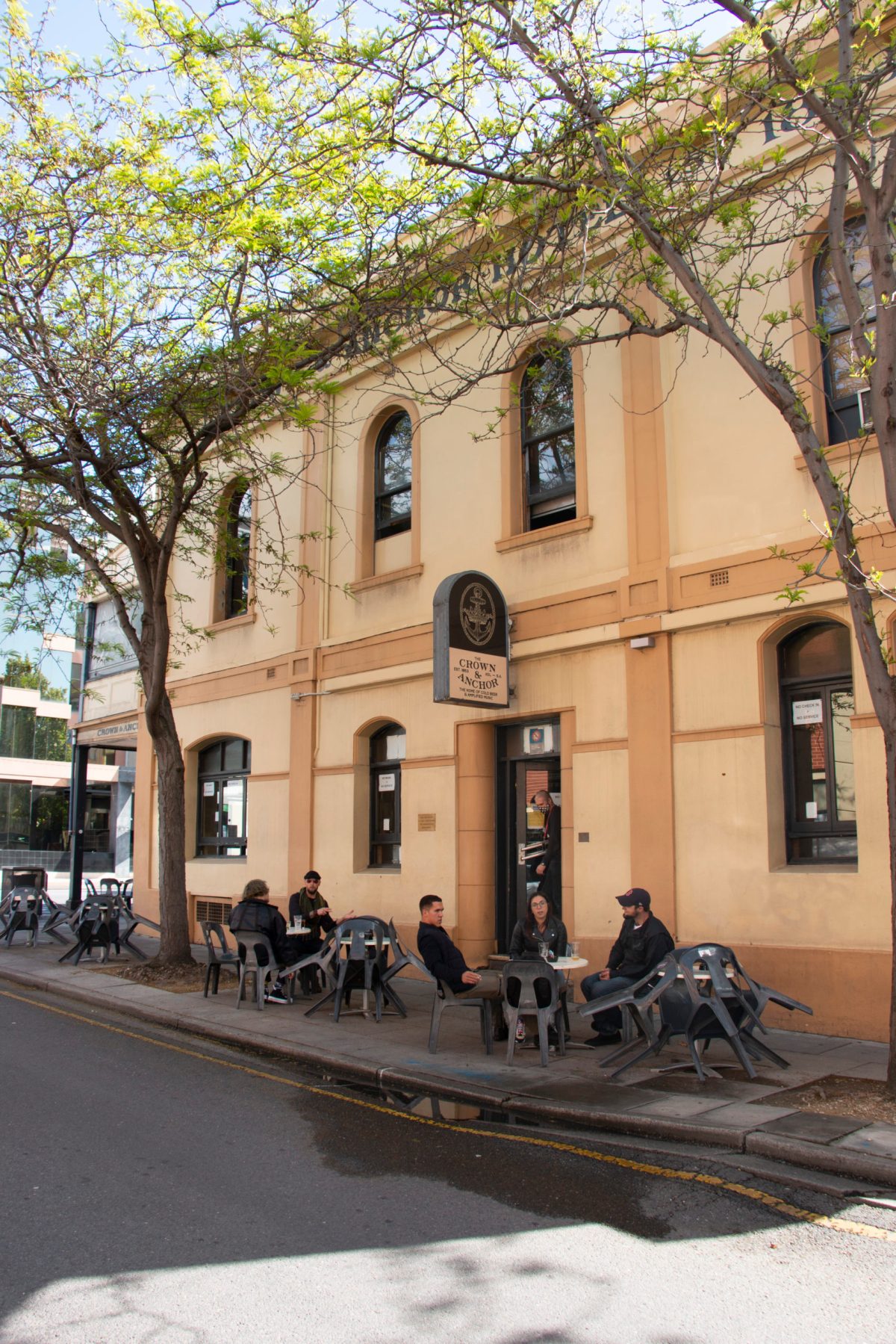
A drink outside the Crown & Anchor is a rite of passage for many young Adelaideans. Photo: Angela Skukins/InDaily.
The Crown & Anchor is particularly important in this respect, Whiting said, because it is a thriving and viable watering hole for young, alternative people “that don’t have many other options in Adelaide”.
“If I was a young person in Adelaide and the Cranker closed, I’d be like ‘well I may as well move to Melbourne’,” he said.
“This will drive young people away from Adelaide.”
Whiting said the state government should be aware of alienating South Australia’s arts and music sector.
“I don’t think this government’s really thought about how much you can push the sector until it reacts quite heavily against it,” he said.
“There’s already a lot of animosity in terms of the broader arts community in the way that they see this government. If you start attacking or neglecting cultural landmarks like the Cranker you activate a whole lot of other people who otherwise weren’t agitated.
“I think the government really needs to tread carefully here. Obviously, we need more accommodation in the city, we need better residential development and medium-density development, but why do we need to plonk that down in the middle of the East End?”
Hay said the Cranker is a “very important part of our cultural fabric”, and was one of the remaining live music venues in the CBD “that’s actually doing well”.
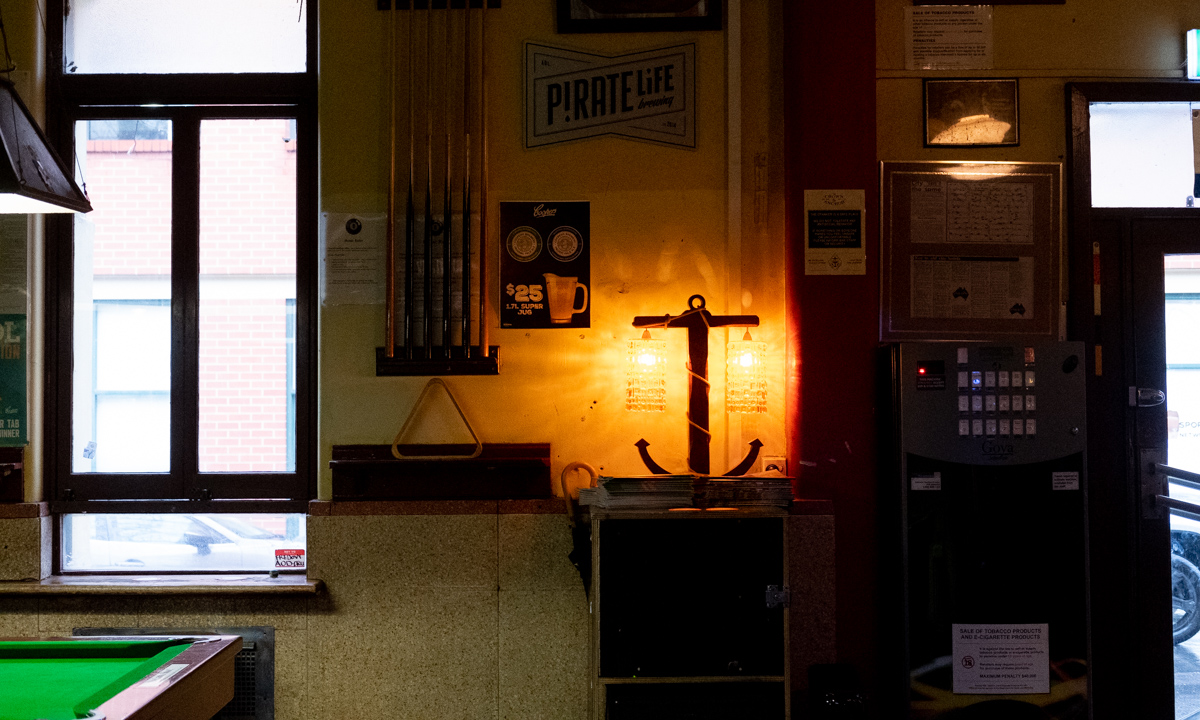
Photo: Johnny von Einem
“In its cultural position, it’s a very important part of the fabric and even more so in the current environment where venues are struggling and cultures are changing around live music and the night economy,” he said.
“It’s a bastion of a particular music culture.”
He added that the issues Adelaide is facing with venue closures are happening “all over the world”.
“There’s a lot of work being done on Adelaide remaining a vibrant city that can attract and retain people. So I would hope that the planning laws and the people who make these decisions are taking this all into consideration, because it will have a very serious impact and it will hurt a part of the culture,” Hay said.
As Crown & Anchor supporters mount a grassroots campaign, Whiting said Adelaideans could also look interstate for community-led inspiration.
“Some ways of approaching this have been successful, and it’s quite radical which is crowdfunding revenue to purchase the freehold to venues and managing them in terms of a charitable trust, or a community trust,” he said.
“(Melbourne’s legendary live music venue) The Tote was sold to publicans recently with funding derived from the community – $3 million of community donations went towards purchasing The Tote.
“There are really novel and radical approaches to that problem, but they involve new legal and ownership structures. It’s all very unique and experimental in an Australian context – but it can be done.”




